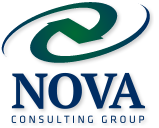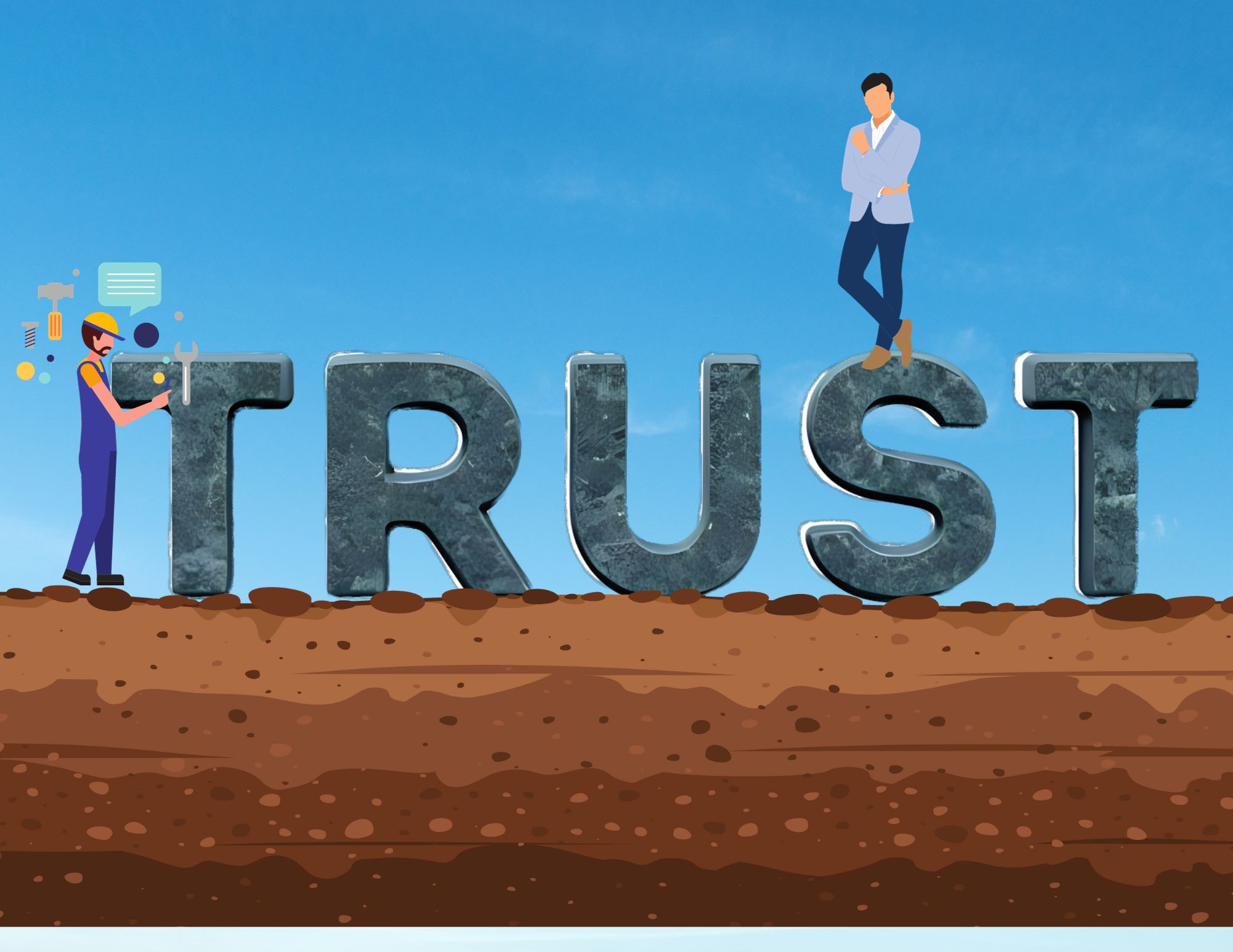What sales approach do you use the most? Most salespeople are inclined to build a relationship with the buyer through the adaptive selling approach. Adaptive selling is one of the best ways to build a relationship with the buyer and gain their trust. There is, however, a subtle and potential pitfall when using adaptive selling. It is essential to pay attention to this trap as you work to build trust with different types of people in the buyer’s roles.
What the research tells us
Influencing buyers’ trust in a salesperson is their tendency to trust specific salesperson characteristics. Researchers Scott Friend, Jeff Johnson, and Ravipreet Sohi, in their research study, Propensity to trust salespeople: A contingent multilevel-multisource examination, looked at two salesperson characteristics – relational customer orientation and adaptive selling.
• Relational customer orientation is how we connect and build relationships with buyers. For example, the salesperson’s actions in establishing a personal relationship with the buyer, like getting to know them personally.
• Adaptive selling is how we adjust to buyers. The best example of this characteristic is when a salesperson alters their sales behaviors during a buyer interaction or across a series of buyer interactions.
The use of these characteristics may signal the salesperson’s motivation. However, it is essential to remember that the buyer interprets the salesperson’s motivations. Those motivations can be either intrinsic (wanting to get to know the buyer personally) or extrinsic (focus is on an external reward, like sales commissions). Therefore, the buyer’s view of the salesperson’s motivation is critical to building an environment of buyer/seller trust.
The findings
Researchers discovered that the strength of the buyer relationship depends on three variables:
1. The buyer’s propensity to trust
2. How the salesperson builds buyer relationships (relational customer orientation)
3. The salesperson’s use of adaptive selling
Relational customer orientation and the propensity to trust
The research highlighted two aspects of relationship building that are not always obvious:
1. Low buyer relationship building: Salespeople who used less relationship building did not impact the buyer’s tendency to trust. The buyer’s trust in the salesperson remained consistent across the trust range. In other words, buyers either see salespeople as trustworthy or not. If you don’t put much effort into building a relationship, it will not impact the buyer’s inclination to trust you.
2. High buyer relationship building: This was surprising – the use of high relationship building hurt the low propensity to trust buyers and had no impact on buyers with an increased tendency to trust.
a. Low propensity to trust buyers are less likely to trust the salesperson. They may possess a negative perception of salespeople. Using a high degree of relationship building with a low propensity to trust buyers may be viewed as suspicious by the buyer. The salesperson’s intent may be extrinsically motivated and disingenuous, reducing their trust in the salesperson.
b. High propensity to trust buyers do not possess this cynicism and are not overly influenced by perceptions drawn from the salesperson’s high or low levels of relationship building.
Adaptive selling and the propensity to trust
Researchers found that adaptive selling can decrease the positive relationship between the buyer’s propensity to trust and the buyer’s trust in the salesperson. This finding runs counter to the belief that adaptive selling is universally positive. Instead, the adaptive selling effect on trust varies with the buyer’s propensity to trust salespeople.
1. Low propensity to trust buyers: Higher levels of adaptive selling are beneficial. When the salesperson displays adaptability and takes the time to modify the approach to see the buyer’s needs, the buyer responds positively as their suspicions lessen. Conversely, if the buyer is not inclined to trust, they look for a salesperson who can display benevolence, demonstrated with high adaptive selling in the trust formation process.
2. High propensity to trust buyers: Salespersons who use a less adaptive approach are better able to gain trust. High propensity to trust buyers put more faith in standardized sales solutions. There is a caution here. An increased propensity to trust buyers may view high degrees of adaptability with suspicion. It goes against their faith in standard approaches. In other words, too much adaptability may erode their trust in the salesperson since trust is part of perceived consistency. If the buyer is inclined to trust the salesperson, they look for someone who can be consistent with their approach. Low adaptive selling with these buyers will enforce the trust.
Avoiding the traps
Both relationship building (relational customer orientation) and the adaptive approach have nuances. For example, instead of being universally positive, they can hurt the relationship with your buyer.
For relationship building, know that only high relationship building has an impact. It will negatively impact buyers with a low propensity to trust. But conversely, it does not move buyers with a high propensity to trust.
For adaptive selling, know that you negatively impact buyers with a high propensity to trust if you are overly adaptive. Conversely, higher adaptive selling positively impacts a low propensity to trust buyers. Adapt in a way that hears what the buyer is telling you. Be benevolent.
Using the science in your selling
To leverage the science, consider adding the following questions to your pre-call planning:
1. Based on what you have observed, do you think your buyer has a high or low propensity to trust salespeople?
2. How does your buyer react when you are trying to get to know them personally? Are they stand-offish or open and friendly? All business or like to talk about other topics?
3. For the buyer you think may have a low propensity to trust, what could you do/say during your adaptive approach to building trust?
4. How could you build trust with a buyer with a high propensity to trust?
5. What trust do you think you have with your buyer?
6. What more can you do to build additional trust?
Awareness of these nuances strengthens you as a salesperson and helps you avoid the pitfalls of buyer relationships and using adaptive selling.
Image: Copyright © The Nova Consulting Group All Rights Reserved
When you think about sales effectiveness at your organization, does it seem like you are close but just missing those unique elements that give you that competitive edge? Looking for a way to understand how your buyer thinks, decides, and reveals information? At The Nova Consulting Group, we believe that professional selling is a craft. With the Advanced Sales Conversation©, you have those missing elements that move your salespeople from competency to mastery. With our deep understanding of what makes and sustains high-performance organizations, we provide integrated solutions that do not replace your sales methodology and yet advance a progressive selling mindset. Be bolder, more insightful, and get results. To learn more about how to master the craft of sales and encourage sustainable high performance, call (617) 933-7249 or email info@novaconsultinggrp.com.
How Does Your Buyer Remember You?
Buyer, will you remember me? It is a curious thing. Most B2B buyers do not perceive sellers as different from one another. Given how much work goes into the development of products and services, [...]
Mid-Year Sales Review: Simplify and Stop Pushing
Mid-year is such a turning point for a sales team. You can notice trends, problems, and opportunities. However, those problems can be magnified when the sales team is behind in its mid-year goal. On [...]
Listening to Understand: Sales Conversations That Matter in the Digital Age
Even in the Before Time (remember those years before COVID?), buyers were moving away from salespeople and changing when and how sales conversations happened. In our first white paper, Window Into the Buyer’s Mind, [...]
Leading Resiliency: Developing Your Sales Team for 2024’s Challenges
The sales landscape is undergoing a monumental shift, creating turbulence for sales teams. High-performing sales teams show greater resiliency when ongoing development is part of the employee experience. That resiliency supports how salespeople cope, [...]
CROs, Is This Sales Conversation Myth Derailing Your Forecast?
There is this weird perspective in sales that could very well derail your forecast. There is this belief that any sales conversation is better than no conversation. This means that someone on your team [...]
10 Ways the Advanced Sales Conversation© Supports Non-Traditional Sellers
Are you a lawyer, consultant, C-level executive, architect, project manager, engineer, or freelancer? Regardless of your profession, you are likely responsible for maintaining clients and attracting new business. However, selling and persuading others may [...]








